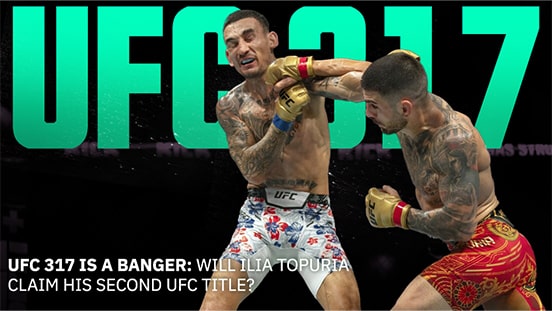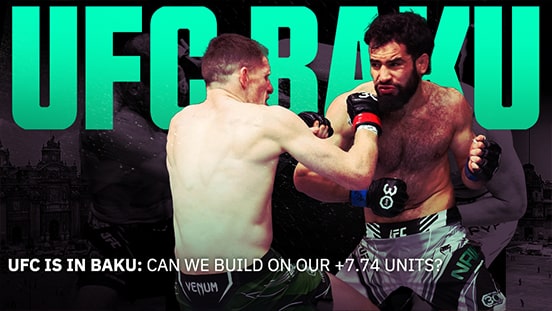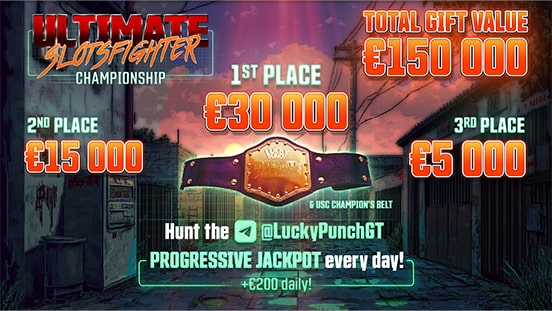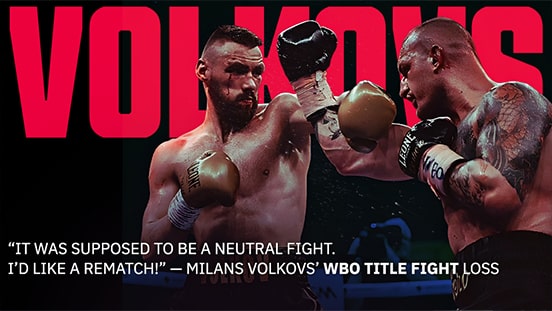From her beginnings in Baltic promotions like “King of Kings” to fighting abroad in France’s “Hexagone MMA”, Ernesta Kareckaitė has steadily risen through the ranks of European MMA. Her breakthrough came in 2023 when she earned a UFC contract with a split-decision victory over Carli Judice in Dana White’s Contender Series, marking her as a key representative of Lithuania in the UFC.
In this interview, Ernesta reflects on the methodical nature of her rise to fame and how competing in unfamiliar territories helped shape her. She also shares the fortitude required to bounce back from her UFC debut loss to Dione Barbosa—a fight she believes she didn’t truly lose—and credits her coach Ignas Barysas as the architect of her evolution as a person and a fighter.
Having fought in several promotions like Hexagone MMA before joining the UFC, how did those experiences shape you for the big leagues? Are there any moments from those smaller circuits that stand out?
Like everyone, I started my MMA journey doing amateur fights. I think the best way is to create yourself as an amateur as much as you can, and then you can create yourself as a pro fighter.
It’s so important to feel yourself, to know what you can and can’t do yet, how to fight, the motion, everything—you get used to it. The best tip for anyone starting out is to fight amateur as much as possible.
My professional career started in “King of Kings”, which involves all of Europe. There were a lot of people. I started fighting in the Baltics and saw what it meant to fight in a place with more than just a few people. Afterwards, I got a contract with Hexagone, which is a league in France—so I used my weapons in countries other than Lithuania and started fighting abroad. It was good; I wasn’t at home, wasn’t as comfortable, had to trust the people in my corner and just do my job.
Everyone was like an enemy. That was good. After, you feel like you can do anything with just your corner and your coach beside you. It doesn’t matter where you fight or how many people are watching. You just see your opponent, and that’s it. That’s how I improved, by pushing the comfort zone. My coach always says, “We’re taking the hardest route in our lives. That’s why we can be better every day.”
Given your nickname “Heavy-Handed”, how do you balance that power with technique in your striking? Is it exhausting to maintain this level of intensity in every fight?
It depends on the person. I created that power on my journey along with my coach. He knows how to create that feeling, to touch that generation of power. But you can’t do it in every fight—it depends on the angle, the moves, the opponent. You have to put in hard work and have the passion to do it.
Of course, my coach knows how to combine it all. I give all the credit to him—he’s creating me as a person, as a fighter. I wouldn’t be here if it weren’t for him. He had a stone and he’s carving a diamond out of it.
My team and all the people supporting and helping us are very appreciated. I’m blessed to have these people around me. They’re like a second family. When I came back home from a loss, they were waiting for me at the airport, hugging me, telling me they’re proud of me. MMA is not a lonely sport. You create your own circle, and I have never felt alone on this journey.
Is there a specific fight where you realized you had leveled up significantly?
You know, I don’t really realize it. I’m always trying to be better than I was in my last fight, always trying to evolve. When I watch my fights, I never see myself as the same person. And that’s when I think I’m evolving—which is every single time.
You’ve secured multiple finishes in the first round. Do you go into a fight with a strategy aimed at early finishes, or do they happen organically based on the flow of the match? How do you prepare for the unpredictability of a fight’s duration?
Always based on the flow. Usually, you have a plan, and when you see that plan moving perfectly, you can finish the fight. When the plan is good, but the opponent is playing the chess game with you too, it’s not that easy. When you have two high level professional fighters, you can’t always get quick fights in. It really is a chess game, but much shorter—just one step can be the last one. There are only two pieces on that board.
Our team is always working hard. If a fight is three rounds, you have to train like it’s going to last ten. I know the people working with me are doing everything they can to make me feel comfortable in the gym, because I want to be comfortable in any fight. If I’m going to bleed, sweat and cry during training, it’s not going to happen during a fight. As a team, we always push each other to build those monsters out of ourselves.
Your fight against Carli Judice earned you a UFC contract after a split decision win. What were your thoughts going into that fight, knowing a UFC contract was on the line? How did you manage that pressure?
The way I treat it, every fight is my last fight, and I have to give it my all. After the fight with Carli, I felt my hand being raised. Only hours after did I remember: this fight was the red line. I was just fighting it out from my entire heart. I only realized much later on that that was the exact time and place I had to. It felt amazing, but I never let the pressure get to me—I just did my job.
Hearing that announcement was a dream come true, though. Can’t even describe the feeling. It’s something everyone in their lives should feel; doing something, anything, where you can get this kind of satisfaction.
You come from Lithuania, a country increasingly associated with MMA. What has it been like representing Lithuania on the global stage?
It’s a huge honor to represent my country! We’re small, but we’re showing the world our big hearts and already making big steps worldwide. My dream is to be a good example for others, especially girls. At the same time, when you already put so much of your heart into it, the people see it. If you do you, people notice it—you don’t even need to try. They will feel your energy.
Your UFC debut didn’t go as planned, with a loss to Dione Barbosa. How do you bounce back from a high-profile defeat? Has it changed your approach to training or prep?
I think I didn’t lose that fight, but it motivated me. It took me higher than where I started my journey. I do really want to fight again and show the world how much has already changed. My team and I, we’ve changed what we did wrong, and we’re all different fighters now.
To this day, even right now, I still can’t believe I’m a UFC fighter. When someone reminds me that, I can’t even fathom what I’ve done. Right now, I still don’t feel it, and I don’t know when it’s going to hit me. I’m always training for a fight, or fighting, or recovering, so it’s going to be a process in itself to one day actually come to terms with my achievements.
Odd question—but do you have “vacations”?
Well, sort of. After fights, the coach will give you about a week or two for recovery and rest. But even during those rest weeks, I’m at the gym, or just watching and observing.
When you’re doing and living your dream, you can’t walk away from it. You don’t want to. And you don’t know what else to do, anyway. If I go somewhere to relax, it takes me one day to think, “Oh my god, I need to go back to the gym. What am I doing here?” [laughs] As for hobbies… Love to sleep.
Looking at the rapid rise of women’s MMA in recent years, where do you see the sport heading? Are there any changes you’d like to see in how female fighters are promoted or treated in the industry?
I think it’s all changing. I do believe that one day, the woman will be the same as the man. If there’s eight men’s fights and two women’s fights now, in the future, that number will be the same. People will realize that men’s and women’s MMA is equally interesting and equally difficult.
Women are getting stronger, and the world is starting to notice. They can create and achieve unimaginable things as well—and people are finally beginning to understand. Still, I’ve never had any negative experiences. I feel like people know this is hard work, and they respect it.












